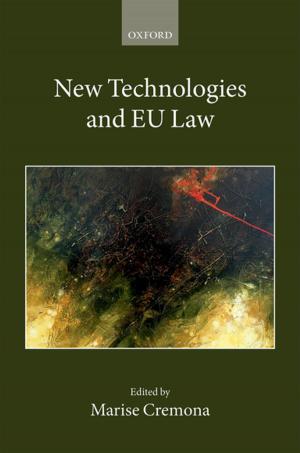The Story of Collapsing Stars
Black Holes, Naked Singularities, and the Cosmic Play of Quantum Gravity
Nonfiction, Science & Nature, Science, Physics, Astronomy, Nature| Author: | Pankaj S. Joshi | ISBN: | 9780191510267 |
| Publisher: | OUP Oxford | Publication: | January 8, 2015 |
| Imprint: | OUP Oxford | Language: | English |
| Author: | Pankaj S. Joshi |
| ISBN: | 9780191510267 |
| Publisher: | OUP Oxford |
| Publication: | January 8, 2015 |
| Imprint: | OUP Oxford |
| Language: | English |
This book journeys into one of the most fascinating intellectual adventures of recent decades - understanding and exploring the final fate of massive collapsing stars in the universe. The issue is of great interest in fundamental physics and cosmology today, from both the perspective of gravitation theory and of modern astrophysical observations. This is a revolution in the making and may be intimately connected to our search for a unified understanding of the basic forces of nature, namely gravity that governs the cosmological universe, and the microscopic forces that include quantum phenomena. According to the general theory of relativity, a massive star that collapses catastrophically under its own gravity when it runs out of its internal nuclear fuel must give rise to a space-time singularity. Such singularities are regions in the universe where all physical quantities take their extreme values and become arbitrarily large. The singularities may be covered within a black hole, or visible to faraway observers in the universe. Thus, the final fate of a collapsing massive star is either a black hole or a visible naked singularity. We discuss here recent results and developments on the gravitational collapse of massive stars and possible observational implications when naked singularities happen in the universe. Large collapsing massive stars and the resulting space-time singularities may even provide a laboratory in the cosmos where one could test the unification possibilities of basic forces of nature.
This book journeys into one of the most fascinating intellectual adventures of recent decades - understanding and exploring the final fate of massive collapsing stars in the universe. The issue is of great interest in fundamental physics and cosmology today, from both the perspective of gravitation theory and of modern astrophysical observations. This is a revolution in the making and may be intimately connected to our search for a unified understanding of the basic forces of nature, namely gravity that governs the cosmological universe, and the microscopic forces that include quantum phenomena. According to the general theory of relativity, a massive star that collapses catastrophically under its own gravity when it runs out of its internal nuclear fuel must give rise to a space-time singularity. Such singularities are regions in the universe where all physical quantities take their extreme values and become arbitrarily large. The singularities may be covered within a black hole, or visible to faraway observers in the universe. Thus, the final fate of a collapsing massive star is either a black hole or a visible naked singularity. We discuss here recent results and developments on the gravitational collapse of massive stars and possible observational implications when naked singularities happen in the universe. Large collapsing massive stars and the resulting space-time singularities may even provide a laboratory in the cosmos where one could test the unification possibilities of basic forces of nature.















